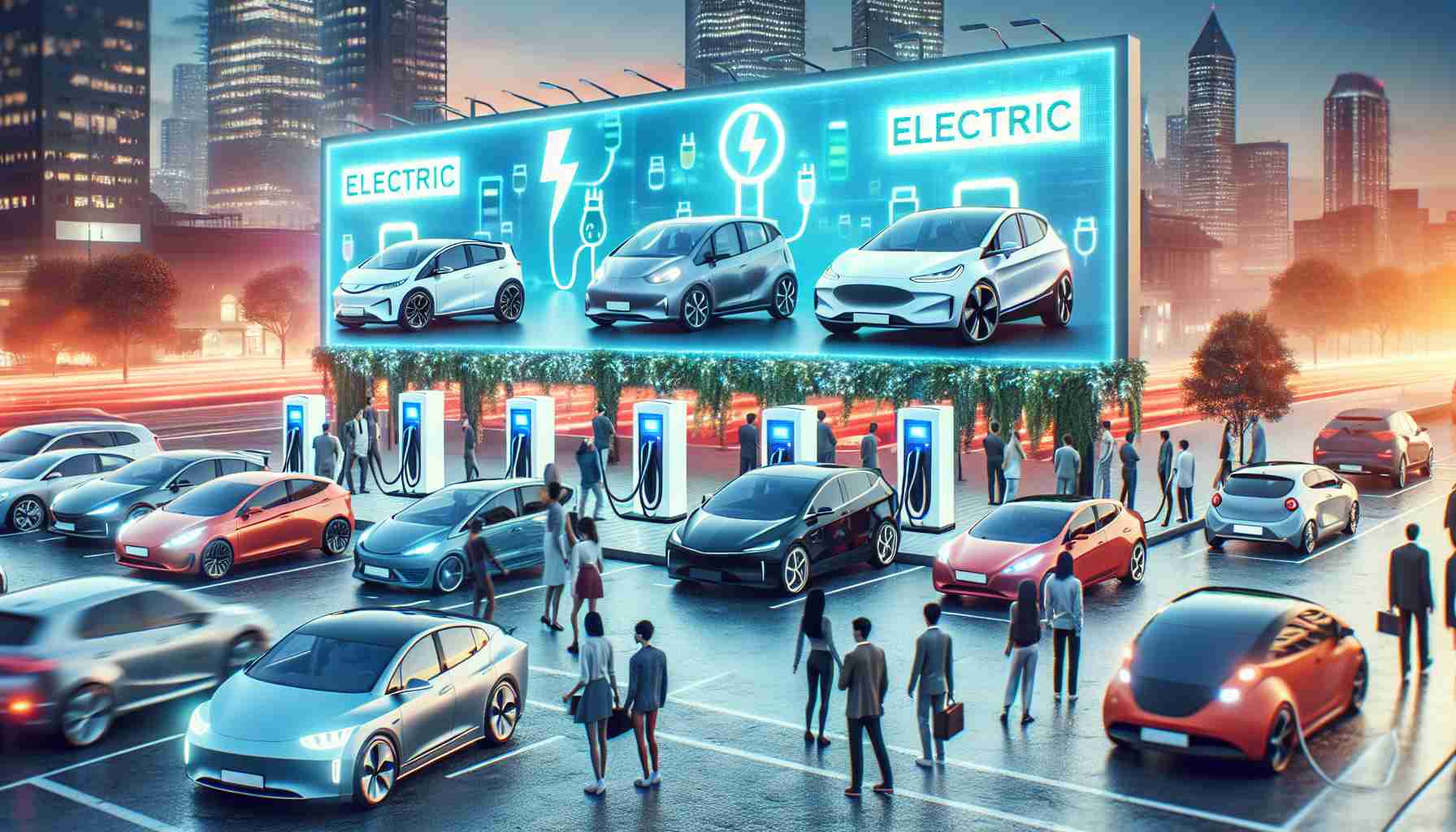Kurnool District Set to Transform the EV Landscape
In an exciting development for the electric vehicle industry, People Tech Enterprises Pvt Ltd has finalized a landmark agreement with the government of Andhra Pradesh to establish a sprawling 1,200-acre electric vehicle park in Kurnool district. This ambitious venture, named Orvakal Mobility Valley, represents an investment of ₹1,800 crore.
The primary goal of this initiative is to create an integrated electric vehicle ecosystem, equipped with cutting-edge infrastructure to support manufacturing as well as ancillary industries. Once operational, it is anticipated that this park will attract a staggering investment of $1.5 billion (approximately ₹13,000 crore) and create job opportunities for around 25,000 individuals. People Tech Enterprises will serve as the cornerstone of this park by building an electric two-wheeler manufacturing facility, initially investing ₹300 crore.
The Orvakal Mobility Valley aims to bolster the electric vehicle sector by providing essential resources like research and development centers, testing facilities, and ready-to-use industrial spaces. Key government officials, including IT Minister Nara Lokesh and Industries Minister TG Bharath, hailed this project as a vital move towards developing a robust EV ecosystem.
Scheduled to break ground at the end of March 2025, the project looks forward to rolling out its first electric two-wheeler by December 2026, with ongoing discussions for collaboration with prominent battery and component manufacturers from Asia.
Societal, Cultural, and Economic Implications of the Orvakal Mobility Valley
The establishment of Orvakal Mobility Valley is poised to reshape not only Kurnool’s economy but also the larger dimensions of society and culture in Andhra Pradesh. By promoting electric vehicle (EV) production, this initiative can foster a culture of sustainability and innovation, potentially shifting public perception about environmentally friendly practices. As electric vehicles gain traction, this project may inspire neighboring regions to invest in similar initiatives, stimulating a broader movement toward cleaner transport solutions.
The economic impact of this investment is substantial, with projections of attracting $1.5 billion in additional investments. Such an infusion can invigorate local businesses, ranging from parts suppliers to service centers, thus creating a thriving ecosystem that supports the EV industry in India. Furthermore, the creation of 25,000 jobs will directly enhance the livelihoods of many, while indirectly benefiting their communities.
Long-term environmental effects could be significant, as increased adoption of electric vehicles may lead to reduced greenhouse gas emissions and improved air quality. As urban areas struggle with pollution, transitioning to EVs will be pivotal in managing these challenges.
Looking ahead, a potential trend toward unified national policies supporting EV infrastructure and incentives is expected, promoting sustainable energy solutions. The Orvakal Mobility Valley stands as a testament to how strategic investments can catalyze a transition into a greener future, marking a crucial step in India’s evolving economic landscape.
Kurnool’s EV Revolution: A Game-Changer for Sustainable Transportation
Kurnool District Set to Transform the EV Landscape
In a landmark move poised to reshape the electric vehicle (EV) landscape in India, People Tech Enterprises Pvt Ltd has signed a significant agreement with the Andhra Pradesh government to develop the expansive Orvakal Mobility Valley. Spanning 1,200 acres in Kurnool district, this ambitious project is backed by an investment of ₹1,800 crore (approximately $220 million).
Project Overview
The Orvakal Mobility Valley aims to create an integrated ecosystem for electric vehicle manufacturing and ancillary industries. With an anticipated additional investment of $1.5 billion (around ₹13,000 crore), the park is projected to generate approximately 25,000 job opportunities, directly contributing to the local economy and employment landscape.
The initial phase of the project will involve the establishment of an electric two-wheeler manufacturing unit by People Tech Enterprises, which has committed ₹300 crore for this purpose. This facility is anticipated to streamline the production process, attracting various stakeholders involved in the EV sector.
Key Features of Orvakal Mobility Valley
1. Comprehensive Infrastructure: The park is designed to include state-of-the-art facilities geared towards research and development, testing capabilities, and ready-to-use industrial spaces, which are crucial for fostering innovation in the EV market.
2. Focus on Collaboration: There are ongoing discussions with leading battery and component manufacturers from Asia, indicating a cooperative approach to enhancing the supply chain for electric vehicles.
3. Sustainability Initiatives: Emphasis on sustainable practices is a cornerstone of the project, with plans for EV-based public transport solutions and charging infrastructure aimed at decreasing reliance on fossil fuels.
Pros and Cons
Pros:
– Significant job creation (approx. 25,000 jobs).
– Attraction of substantial foreign investment.
– Development of an EV ecosystem supporting ancillary businesses.
Cons:
– High initial investment may pose risks if market demand does not meet expectations.
– Dependence on collaboration with external battery manufacturers.
Use Cases
The establishment of the Orvakal Mobility Valley will facilitate various use cases, including:
– Manufacturing of electric two-wheelers and potentially other EV categories.
– Development of R&D units dedicated to innovative battery technologies and EV components.
– A model for future EV parks across India, demonstrating successful public-private partnerships.
Future Predictions
With the Orvakal Mobility Valley breaking ground in March 2025 and aiming to launch its first electric two-wheeler by December 2026, this initiative could set a precedent for similar projects nationwide. The push towards electric vehicles aligns with India’s broader goals of achieving sustainable transportation and reducing carbon emissions.
Conclusion
The Orvakal Mobility Valley represents a pivotal step in Kurnool’s journey towards becoming a significant player in the EV industry. As the focus on sustainability and electric mobility increases globally, this project is not just a local development; it symbolizes a stride toward a cleaner, smarter future for transportation in India and beyond.
For further information and updates on EV initiatives, visit NDTV Edge.













